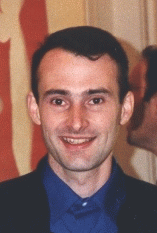

| Invited speakers |
Amotz Bar-Noy:
Cellular Networks: Where are the Mobile Users?
Abstract:
Mobiles are roaming in a cellular network. Unless they report
their new location each time they cross boundaries of cells,
the system must conduct a search operation to find their exact
location. Reporting new locations by mobiles consumes expensive
up-link communication lines. Therefore, in current and future
cellular networks, at each point in time for any particular
mobile, the system knows only a zone of cells containing the
one cell which is the location of this mobile. For this zone,
the system maintains a profile that predicts the exact location
of the mobile by associating a probability with each cell in
the zone. An efficient search should optimize usage of down-link
communication lines and the time needed to find the mobile.
This model gives rise to many optimization problems. This talk
discusses some of them. We first describe the optimal dynamic
programming solution that finds a mobile that is located in
a zone of n cells in no more than D rounds. This solution assumes
an a priori knowledge of the mobile's profile. We then present
solutions in which the system develops a mobile's profile while
searching for that mobile more than once. The above solutions
are for locating one mobile. Next, we address search operations
involving m mobiles where m can be greater than one. One example
is the call conference search in which the system must find
all the m mobiles. Another example is the yellow pages search
where the search is over once one out of the m mobiles is found.
Finding an optimal solution to the conference call problem is
NP-hard. We therefore present an efficient approximation solution.
For the yellow pages problem we discuss work in progress. We
conclude with the privacy issue by exploring the tradeoff between
the accuracy of the profiles and the efficiency of the optimal
solutions that are based on these profiles.
Amotz Bar-Noy: is a Professor with the Department of Computer and Information Science ,Brooklyn College , New York
Abstract:
This survey concerns the role of data structures for compactly storing
and representing various types of information in a localized and
distributed fashion. Traditional approaches to data representation are
based on global data structures, which require access to the entire
structure even if the sought information involves only a small and
local set of entities. In contrast, localized data representation
schemes are based on breaking the information into small local pieces,
or labels, selected in a way that allows one to infer
information regarding a small set of entities directly from their
labels, without using any additional (global) information.
Cyril Gavoille:
Distributed Data Structures: a Survey
 Cyril Gavoille: is a Professor with the Laboratoire Bordelais de
Recherche en Informatique (LABRI), University Bordeaux, France
Cyril Gavoille: is a Professor with the Laboratoire Bordelais de
Recherche en Informatique (LABRI), University Bordeaux, France